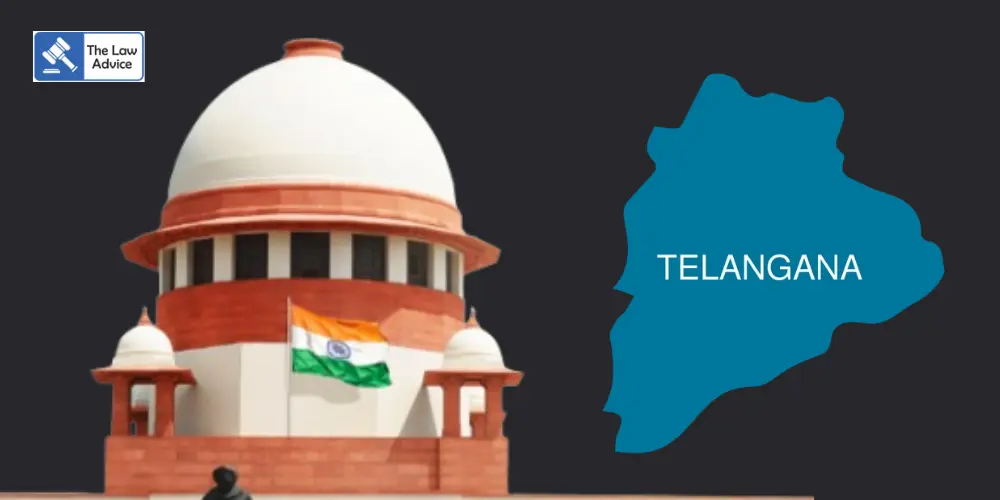
The Supreme Court on Thursday (October 16) dismissed the plea filed by the State of Telangana challenging the Telangana High Court’s interim order that put a hold on the implementation of 42% reservation for Other Backward Classes (OBCs) in local body elections.
A bench comprising Justices Vikram Nath and Sandeep Mehta clarified that the High Court must decide the main issue on merits independently, without being influenced by the Supreme Court’s rejection of the State’s Special Leave Petition (SLP).
At the start of proceedings, Justice Nath questioned Senior Advocate Dr. Abhishek Manu Singhvi on why the OBC reservation was not introduced before the notification of elections. Singhvi replied that the Governor had kept the Bill pending and had not given assent. He added that the Bill became law through “deemed assent” under the Supreme Court’s ruling in the Tamil Nadu Governor case. Singhvi emphasized that while the law had come into effect, the stay was obtained without challenging the Act itself.
Justice Nath asked, “How do you challenge a Bill?” Singhvi responded that the Bill has now become an Act and has been acted upon based on deemed assent.
Senior Advocate Gopal Sankaranarayanan, representing the respondents, argued that the challenge targeted the Government Order that pushed reservation beyond the 50% ceiling. He cited judgments in K. Krishna Murthy & Ors. v. Union of India and Vikas Kishanrao Gawali, which mandate the fulfillment of “triple tests” before granting reservations in local self-government institutions. Previously, the quota was 15%, 10%, and 25% for SCs, STs, and OBCs respectively within the 50% limit. He also noted that the Supreme Court, in Maharashtra and Madhya Pradesh cases, had emphasized that reservations in local body elections should not exceed 50%.
Another counsel for the respondents submitted that the State cannot rely solely on “deemed assent,” as the Tamil Nadu Governor judgment requires the State to approach the Court via a writ of mandamus if there is a delay in granting assent.
Singhvi contended that the 50% limit is not “absolute” and claimed that Telangana fulfilled the triple tests to extend reservations, highlighting that door-to-door socio-economic surveys were conducted over a year.
Justice Nath observed, “Based on these exercises, you have drafted an Ordinance and a Bill, which has yet to take final shape.” Singhvi insisted that the law was already in operation.
Justice Mehta noted that the Gawali judgment did not permit breaching the 50% ceiling. Singhvi argued that Gawali allows crossing 50% if supported by empirical data, and Telangana is the only State to have conducted such surveys.
The bench was not convinced by these arguments and dismissed the petition.
Justice Nath concluded, “You may continue with your elections [without reservations]… petition dismissed.”
Case: The State of Telangana vs Buttemgari Madhava Reddy | SLP(C) No. 29820-29836/2025
Website designed, developed and maintained by webexy